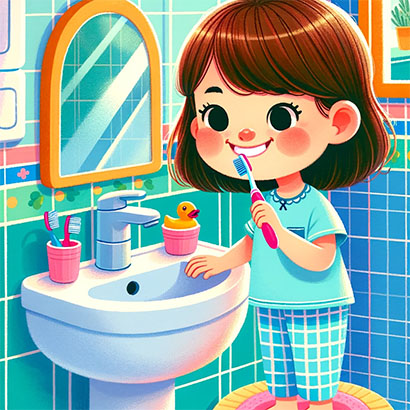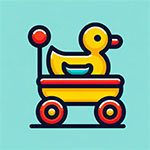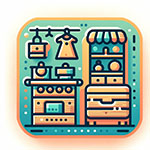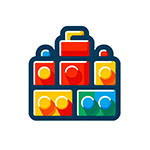Introduction
Personal hygiene for children isn’t just about cleanliness; it’s a fundamental part of their health and social development. However, convincing a young child to brush their teeth or enjoy bath time can sometimes feel like a battle. In this blog post, we explore fun and engaging ways to turn these essential routines into enjoyable experiences. By incorporating creativity into everyday hygiene, parents can help foster lifelong habits that keep their kids smiling brightly and staying healthy.

The Importance of Establishing Good Hygiene Habits Early
Good personal hygiene is essential for preventing illness, maintaining health, and building social skills among young children. Starting these habits early in life not only helps children stay healthy but also instills a sense of independence and responsibility. Experts in pediatric health emphasize that children who learn to take care of their hygiene needs at a young age are more likely to maintain these good practices into adulthood. A study published by the American Academy of Pediatrics suggests that early exposure to routine hygiene activities can enhance a child’s ability to learn and participate in group activities, largely because they miss fewer days at school due to illness and feel more confident in social settings. Thus, making these routines fun and engaging is not just about the immediate benefits but about setting the foundation for a healthy, confident future.
Making Tooth Brushing Fun
Tooth brushing can easily become a fun part of the day with a little creativity. Here are some ideas to help transform this routine task into an exciting activity:
- Themed Toothbrushes and Toothpaste: Allow children to pick their toothbrushes and toothpaste featuring their favorite characters. This small choice can make them more excited about using them.
- Brushing Songs and Stories: There are numerous songs and stories designed to last two minutes, the recommended brushing time. Play a song or tell a story to make the time fly by!
- Reward Charts and Apps: Use a visual reward chart or download an app where children can earn points or stickers for brushing. This not only makes brushing more fun but also teaches children about goals and rewards.
- Demonstrate with Toys: Use a favorite doll or action figure to demonstrate proper brushing techniques. This makes learning interactive and relatable.
- Brush Together: Children learn by imitation. By brushing your teeth alongside your child, you create a bonding activity and show them how it’s done.
Transforming Bath Time into Playtime
Bath time doesn’t have to be a chore; it can be one of the most awaited moments of the day. Here are some ways to make bath time fun and exciting:
- Waterproof Toys and Games: Introduce waterproof books, floating toys, or even foam letters and numbers to turn bath time into learning time. Interactive games like “sink or float” can also add an educational twist.
- Colorful Bath Bombs and Bubbles: Use child-safe bath bombs and bubble baths that come in various colors and scents. Watching the water change colors or playing in a tub full of bubbles can turn a regular bath into a magical experience.
- Themed Baths: Occasionally, set up themed baths that allow children to use their imagination. For example, a “jungle bath” with plastic jungle animals and plant decorations, or an “ocean adventure” with sea creature toys and blue water using safe bath coloring.
- Supervise Always: Never leave a child unattended in the bath, even with just a small amount of water.
- Check Water Temperature: Always check the water temperature before your child gets in to prevent burns.
Role of Parents and Caregivers in Hygiene Education
The role of parents and caregivers is critical in setting the tone for personal hygiene. Here’s how they can effectively guide their children:
- Be a Role Model: Children are great observers and often mimic adult behaviors. By practicing good hygiene yourself, you set a living example for them to follow.
- Educational Dialogue: Use bath time and brushing as opportunities to discuss why hygiene is important. Explain in simple terms how brushing teeth helps keep them strong and bath time keeps their body clean and healthy.
- Balancing Independence: Encourage independence by letting children attempt brushing or washing themselves, under supervision. This not only builds their confidence but also their skill in managing their own hygiene.
Conclusion
Making personal hygiene fun and engaging for children is an investment in their health and independence. With creativity and patience, everyday routines like brushing teeth and bath time can become enjoyable and educational moments. Consistency is key—children thrive with routine, and making these activities consistently enjoyable can help establish lifelong hygiene habits. We encourage parents to stay patient and persistent, and remember, every child is different. What works for one might not work for another, so feel free to adapt these suggestions to meet your child’s needs and preferences. Share your experiences or any additional tips you’ve found helpful in the comments below





